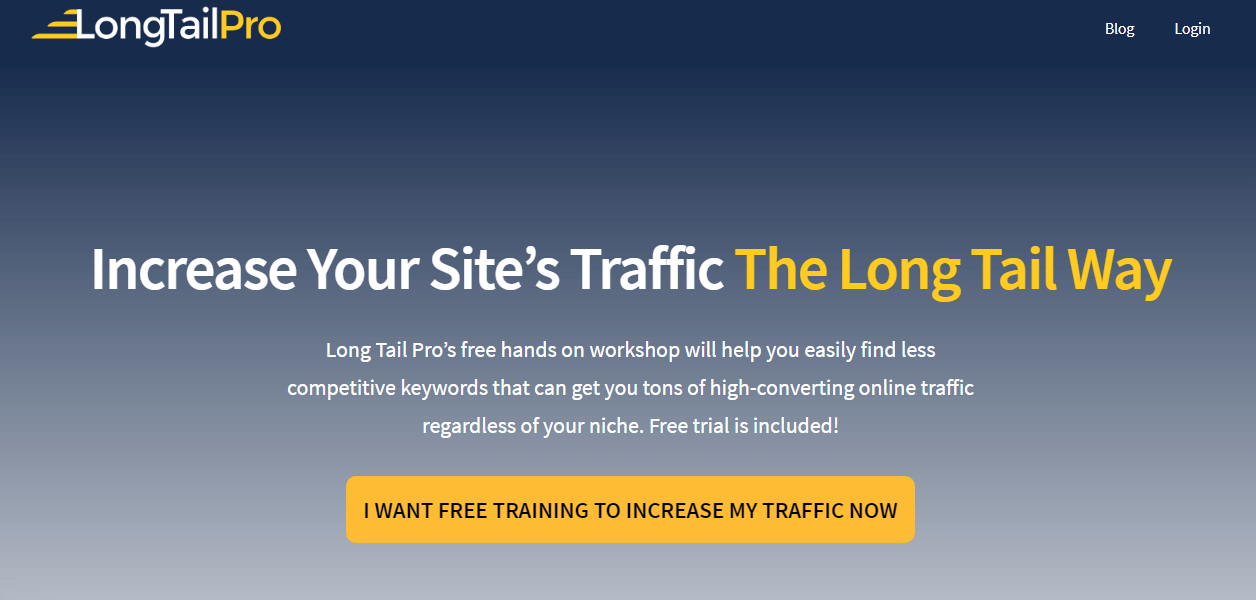Use a Keyword Research Tool
When you’re in the process of rolling out a new blog or website, it’s crucial to act quickly in order to overtake competitors. You’re not alone within your niche, but there is only one first page of Google search results. A productive content strategy requires thorough niche keyword research that takes time. Specially developed tools allow optimizing the process and targeting the most appropriate keywords for a niche. Let’s see their main benefits:
- Keywords relevance to attract your target audience.
- Identification of the most profitable niche markets.
- Opportunity to track competitors.
- Plenty of money-making related keywords.
Now, it’s time to deal with the most effective ways of collecting the right base for your content marketing.
Two Ways to Research Keywords
Traditional keyword research for a niche is based on their frequency. For example, if your site promotes hotels on Cyprus, you enter this word-combination and then start selecting keywords that people type in the search most often. It’s not a useless approach, but it will cost you a fortune and tons of time because too many marketers and webmasters bid on the same high-frequency words.
The competitor-based technique offers to analyze a keyword in order to assess its real value for your site/blog. It displays the competitiveness of those words. For this purpose, you need a dedicated tool that is able to make a list of competitors (seed sites), plug a seed URL into the tool to bring up the organic results for that competitor, filter the keywords and do tons of other operations.
Now, it’s time to go over several advanced tools that can help create a low competition and high traffic keywords list on short notice.
Best Free Research Tools
The following list of the best tools focuses on the functionality, simplicity, versatility and practical value of the tools. Certainly, they’re not perfect, but they’re good enough to become a free alternative for paid services, especially when you’re just a rookie and do your first steps in attracting organic traffic.
Google Adwords
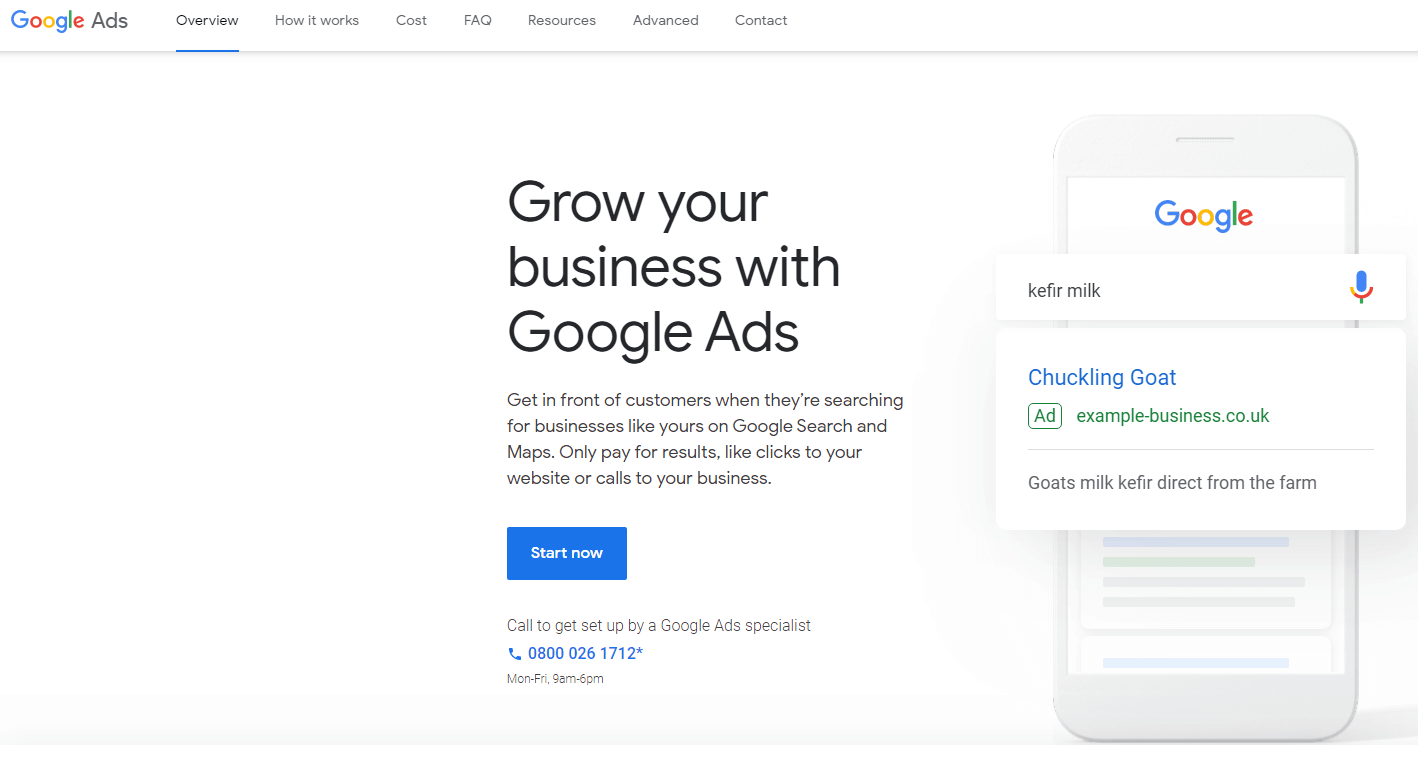
With Google AdWords, you’ll be able to take advantage of its free Google Key Planner that allows making keywords research for both paid campaigns and organic traffic and displaying words with low, medium or high competition. It’s a great assistant for both newcomers and those who want to grow. The service allows finding either new keywords or getting metrics and predictions for the existing ones.
This tool is rather demanding since it gives you results that are dependant on the information you enter. It is necessary to have a well-developed strategy to start using Key Planner. Enter words and phrases that describe your niche accurately in order to get a list of related seed keywords. Besides, you can use the opportunity to check your competitors’ domain to dig out more valuable ideas. In case you already have a list of keywords, use the option of checking the search volume and foreseeing the number of clicks and impressions you could get. Also, the tool can filter results by location, language and search networks.
It’s a free tool, but you need to have Google Ads Account to use it, even though running an active campaign is not necessary.
Google Correlate
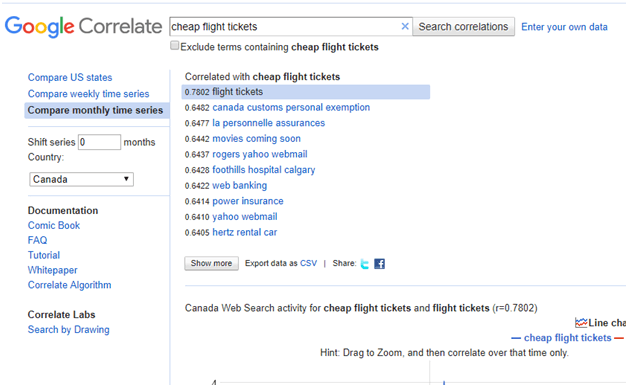
Google Correlate is a competitive keyword research tool that works “upside down”: a user provides a target data series and gets queries with a similar pattern. Besides, it’s still necessary to use other tools because this one is based on the total volume’s share.
The service hints where your audience is and helps find relevant keywords according to a geographical area. For example, enter “Paphos airport” and you’ll find the areas that are the closest to such interests. To find matching keywords, let your seed keyword list run several times through the service to see the results. You’ll get the list that contains words different from your keywords but with the same search trends.
Answer the Public

Answer the Public allows you to get content ideas instantly, based on Google and Bing search trends presented in the form of a categorized mind map.
Then you can make keyword research and analysis in order to compare popular queries with your product and pick those that you can answer. The tool gives great opportunities for niche phrase optimization, in particular, to use them as subheadings. For example, if you enter “Flights to London” you may see such a question as “Where can I book a cheap flight to London?” or “How can I get to London fast?” and choose the proper question to entitle a part of your article on the travel blog.
Keyword In
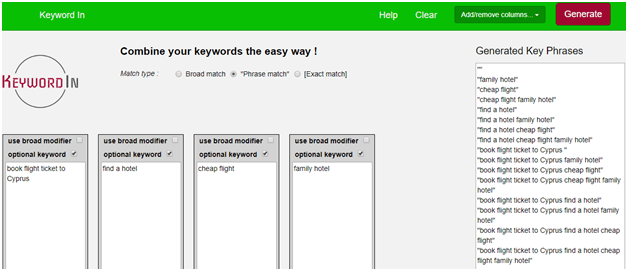
Keyword In is a word combiner that helps build PPC campaigns, create unique domain names and succeed with SEO. It offers several match types to give you a long list of potential niche keywords. If the results aren’t satisfactory for you, it’s possible to change the seed keywords and start again. Each search takes just a couple of seconds.
Adword & SEO Keyword Permutation Generator
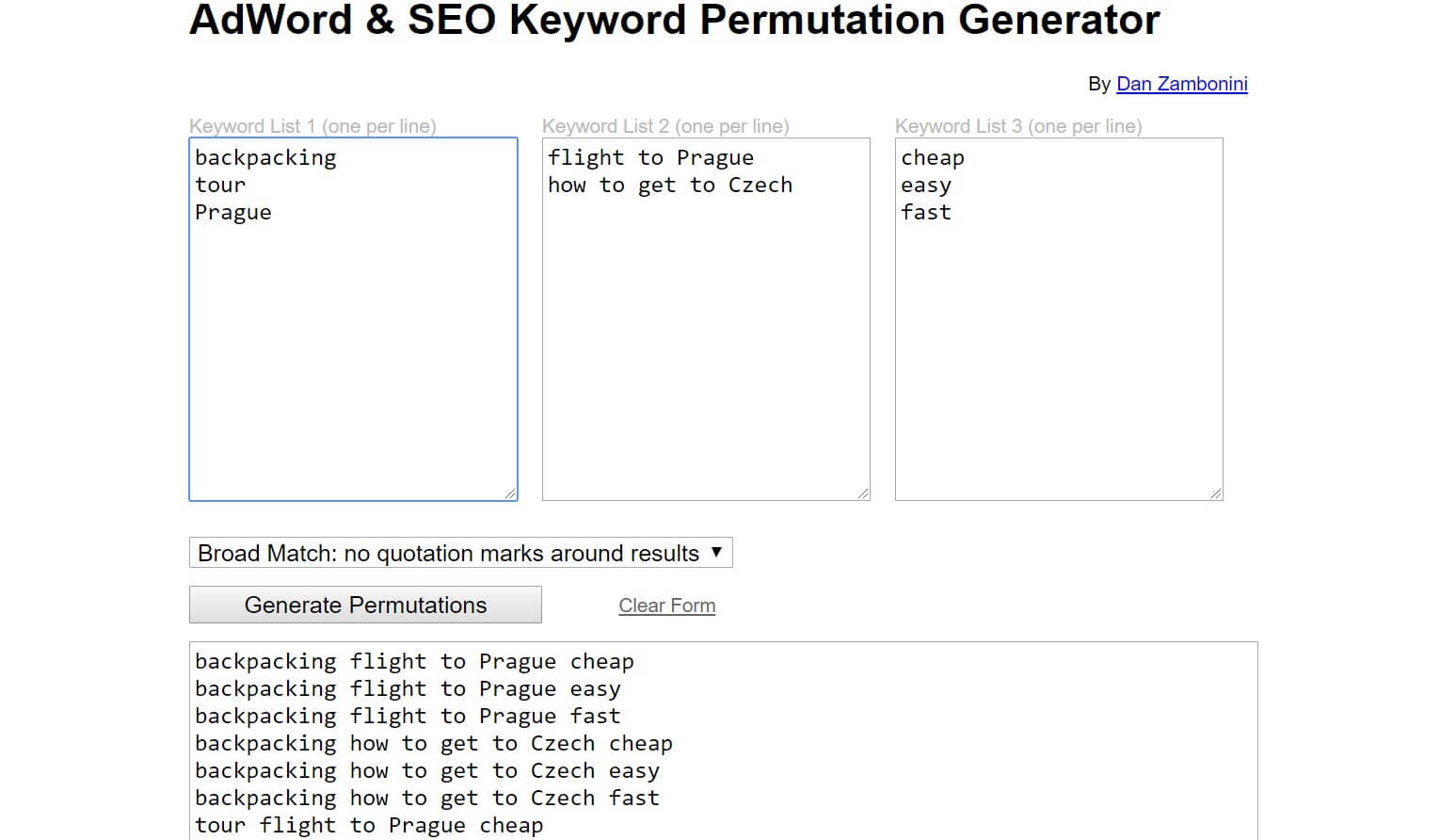
Keyword Permutation Generator makes it possible to analyze competitors’ keywords. For this purpose, it’s necessary to build three different lists of keywords. For example, one of them will be based on location, another will display services and the latter will include broad keywords. Certainly, not all results are relevant and that’s why it is important to manually check the list and pick the most appropriate phrases.
Soovle
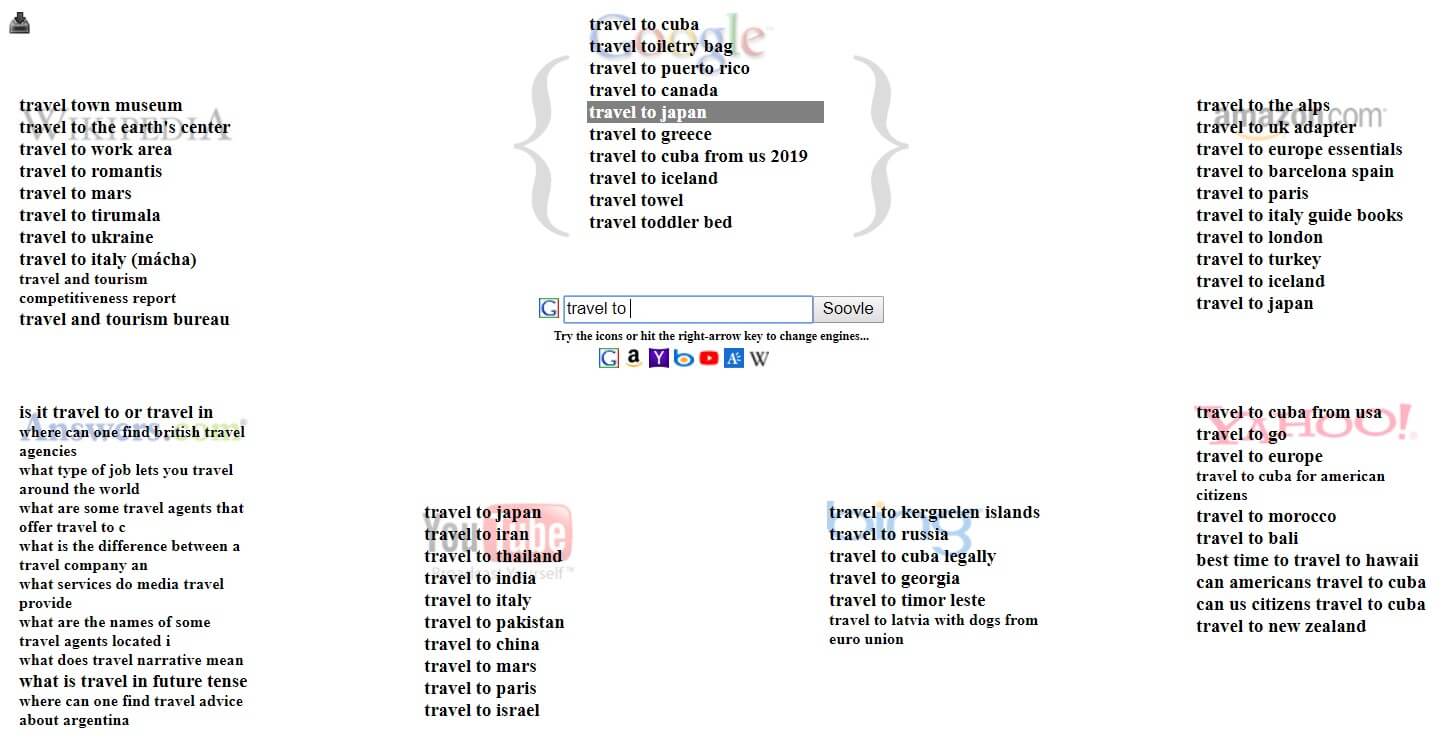
Soovle helps to enhance search results when offering patterns from various sources, including Google, Yahoo, Wikipedia, YouTube and other search engines. To start off, you should pick a source. For example, below, you can see the queries from YouTube or Google:
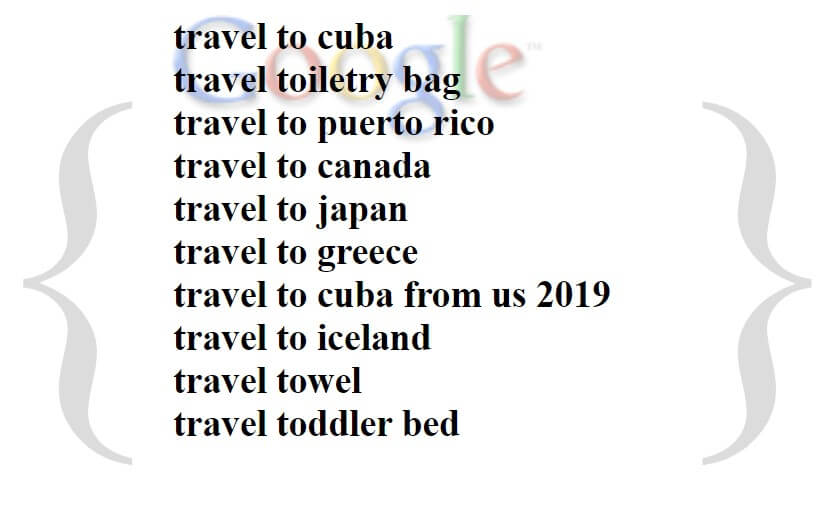
Bing and Yahoo are also available:
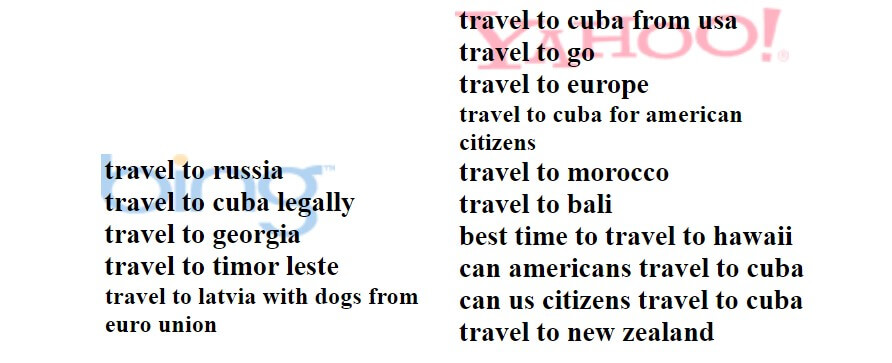
Imforsmb Bulk Keyword Generator
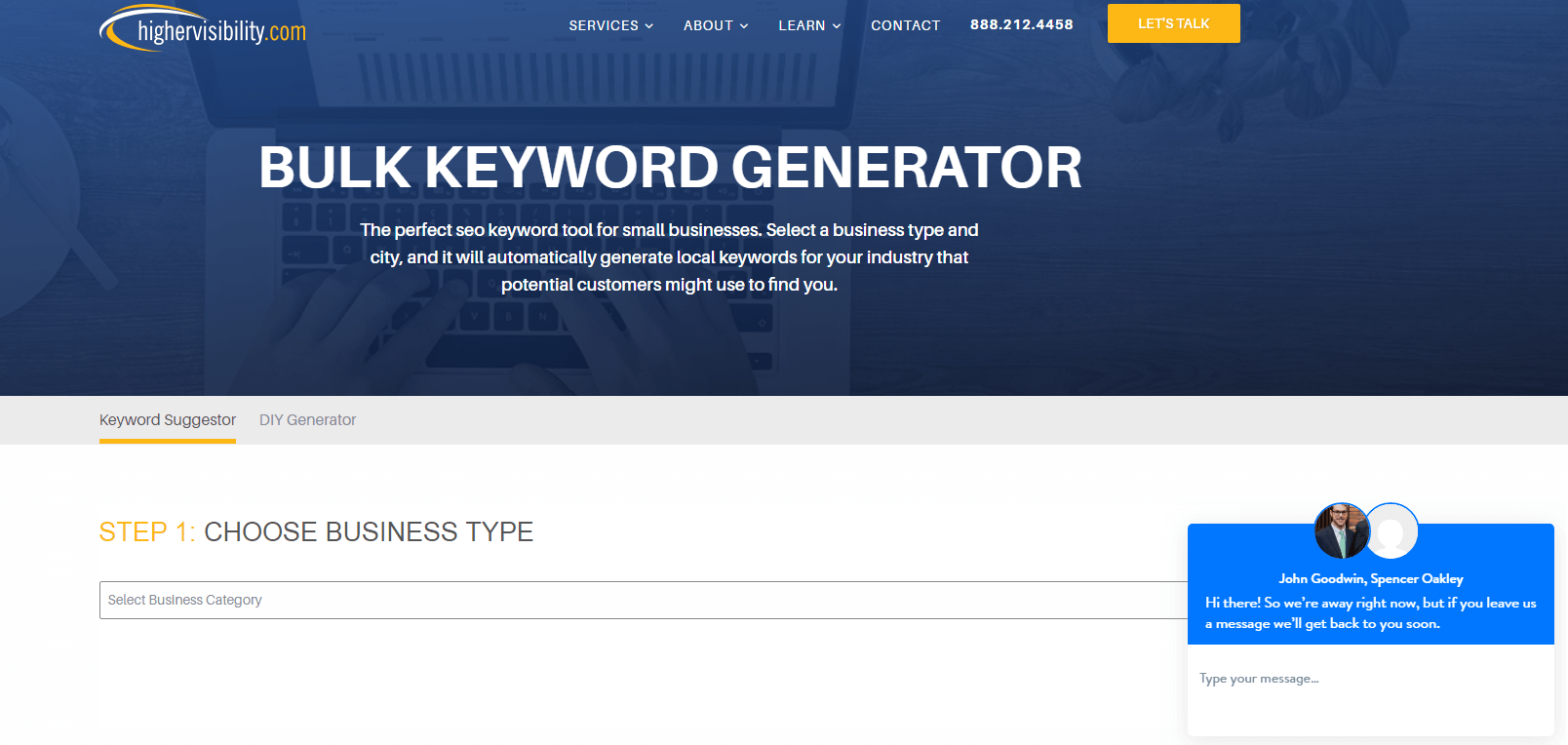
IMforSMB Bulk Keyword Generator is rather specific since it allows you to access area-specific results. Just type in what kind of business you do, the product you offer and add keywords with the locality. Don’t worry if you don’t find a suitable business type in the field. Just pick any of them and then replace it in the results. For example, an industry such as travel isn’t introduced because it’s not “local” enough.
Ubersuggest
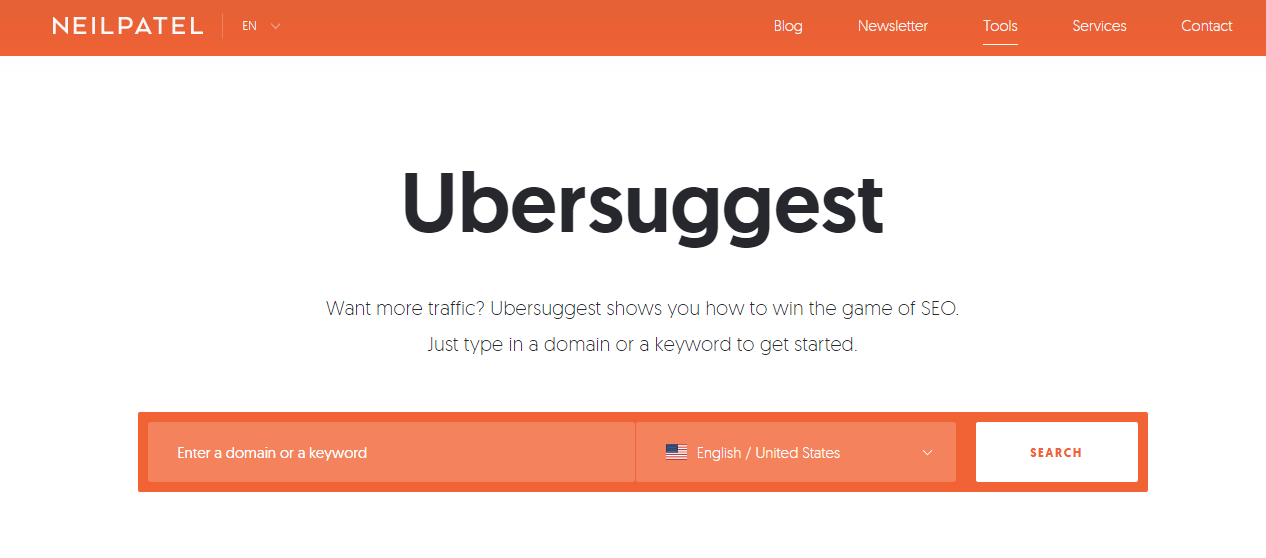
Ubersuggest offers the results based on Google Keyword Planner and Google Suggest. The latter provides Ubersuggest with niche keywords and related terms. Besides, this service is remarkable for an extremely simple interface. In other words, it finds out the information that’s available but is difficult to reach and collect it inside a user-friendly placement.
Best Paid Research Keyword Tools
Is it worth paying for tools to reveal Google keyword competition, pick appropriate niche keywords, build a strong content strategy and attract much traffic? For small businesses, free tools might be enough, but in the case of working with plenty of resources, paid platforms are better. Besides, they can score keyword competitiveness, calculate their profitability, define metrics and much more. Let’s look through the list below to check some paid services and learn about their features.
Semrush
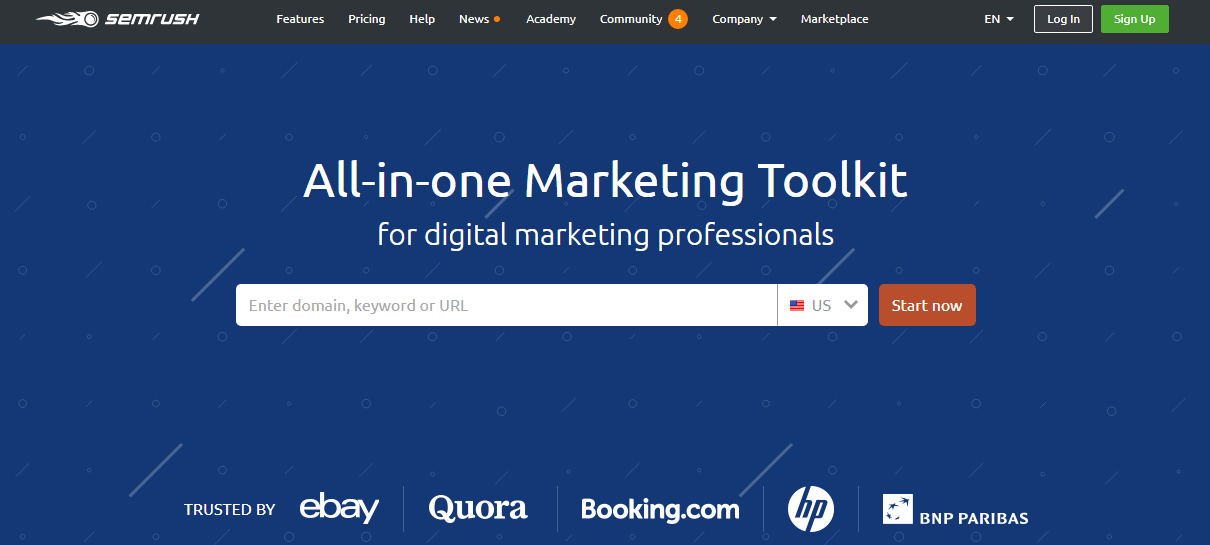
SEMrush can easily be called “keyword research+” since it offers a bunch of options. To analyze a website for keywords, enter your blog’s URL and get an option relevant to your website. Besides, the service displays statistical nuances of specific keywords and related ones that it’s possible to rank for. The tool fits bloggers and marketers, individuals and companies. The results show the keywords, their position, cost per click, number of users queries for a certain period, Google keywords competition and trends.
SEMrush features a seven-day free trial and three plans: Pro, Guru and Business for $99.95, $199.95 and $399.95 respectively. Enterprises can apply for a special offer.
Ahrefs
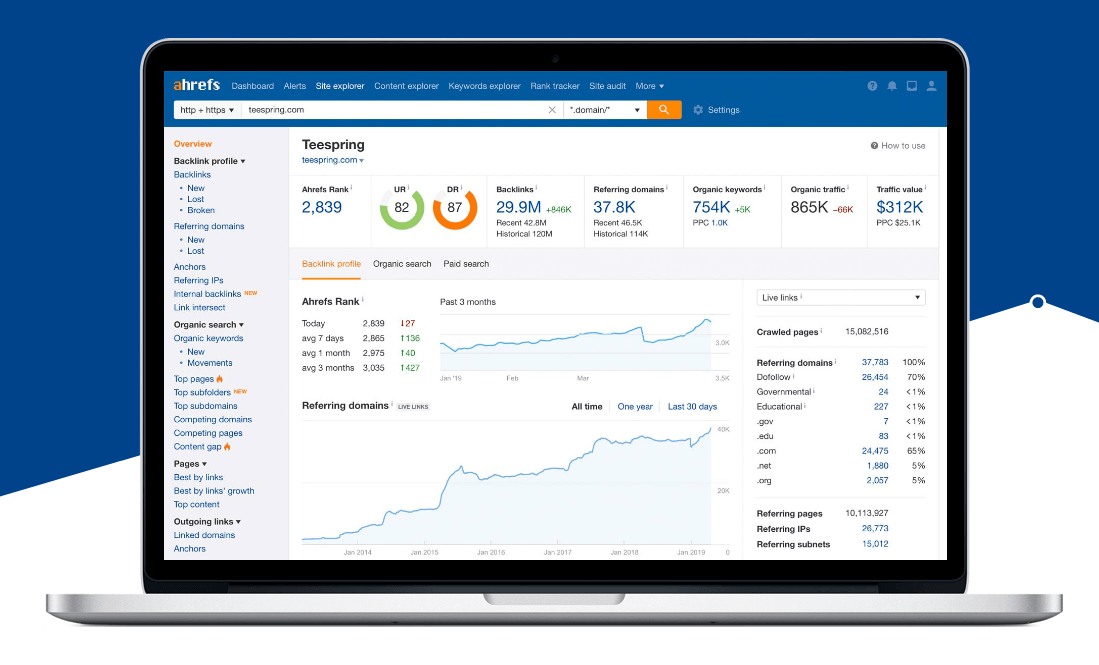
Ahrefs helps with checking backlinks, finding keywords on a page, researching competitors, finding correspondent content for any niche and valuable content ideas. Since its database includes seven million keywords, the program ensures precise results of every search. According to multiple user reviews, Ahrefs works really fast and provides a lot of results for each search.
Ahrefs offers a seven-day trial for $7, a Lite option for $99, Standard for $179 and Advanced for $399. There is a special offer for agencies for the monthly price of $999.
Longtailpro
LongTailPro is specialized in niche keyword research and is good at finding the least competitive keywords. Note that it requires the list of seed keywords to start working. The results you get are based on 13 diverse metrics. The service permits you to define keyword competitiveness, difficulty and frequency.
The main advantages are a great keyword competitiveness score and a deep competitor analysis, as well as precise rank tracker.
You can purchase a subscription for $25, $45 or $98 per month and or try a 7-day free trial. If you’re a newcomer in marketing, there are many tutorials on the LongTailPro’s website.
Spyfu
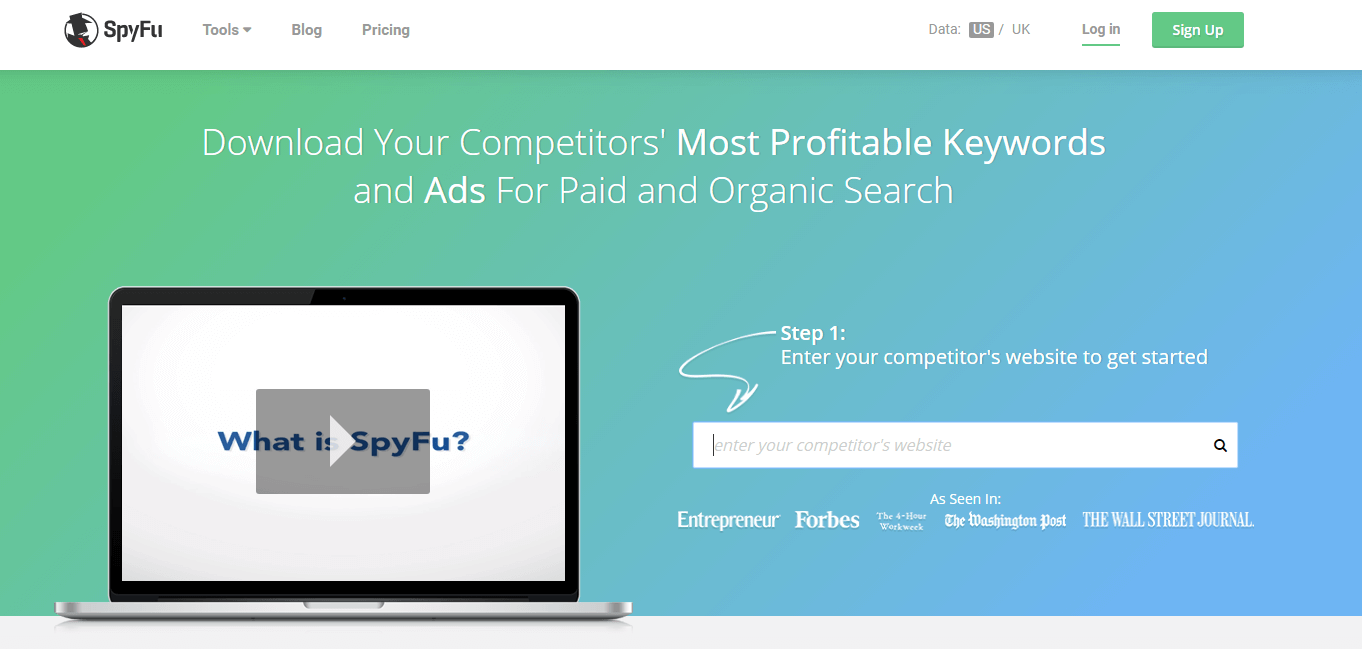
SpyFu will provide you with the niche keywords for both paid and organic search. You can enter keywords to receive their variations or a domain name to see some relevant keywords. SpyFu is a good tool for newbies as well as more experienced users.
Take advantage of any of the three following plans:
- Basic subscription ($39 monthly, or $33 for a one-year plan)
- Professional plan ($78 monthly, test the first month just for $58)
- Team package ($229 monthly)
Serpstat
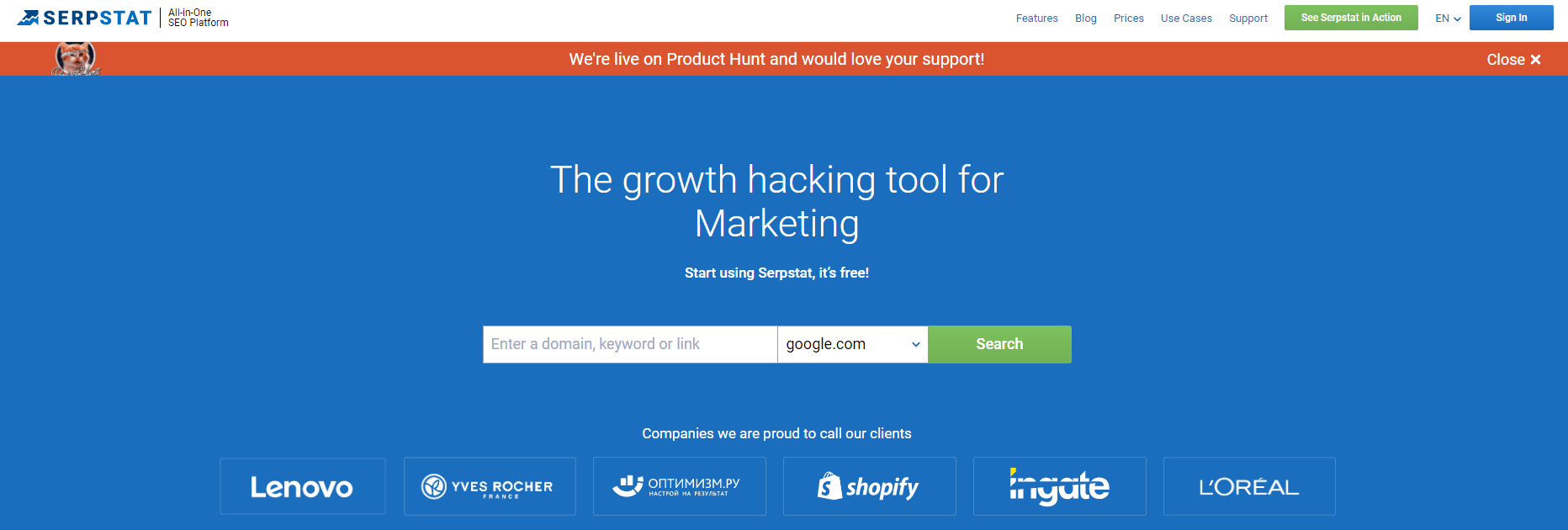
Serpstat allows you to monitor the performance of your website: track its position, make website and domain analysis and more. Its diagrams display the average position of keywords and the number of your website appearances in search results.
If you’re promoting a small business, it’s rational to use a Lite plan for $69 a month. Other packages are Standard for $149, Advanced for $299 and Enterprise for $499 per month. It’s possible to try out the program for free but the number of queries will be limited.
Kwfinder
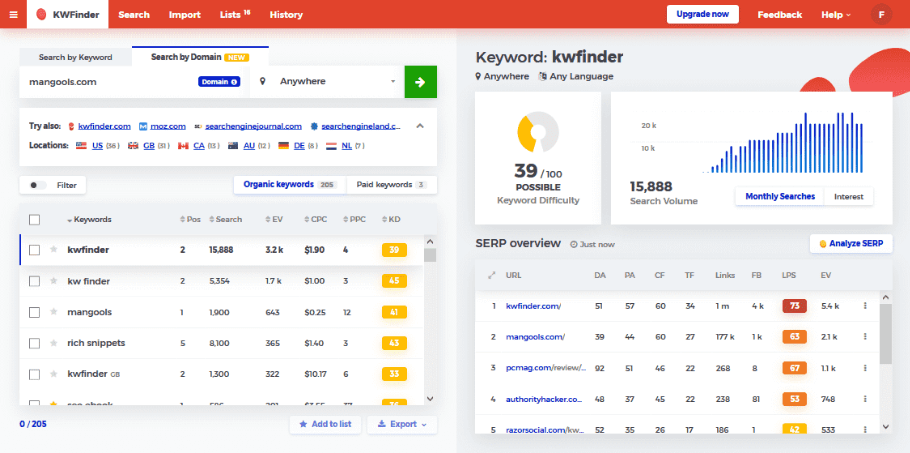
KWFinder is a cloud-based service which focuses on providing marketers with the niche keywords that feature low SEO difficulty. When entering the main seed keyword, you can get the hidden niche keywords and even make them more specific, with location and language filters.
The platform will generate a list of words which you can add to your own list with just one click. Besides, you can collect material for a local business. Note that the service determines the keywords’ difficulty accurately. It also generates questions that people ask when entering them in the search bar.
It’s one of the most affordable tools on the market. You can purchase a Basic plan for €25.90, Premium tariff for €34.90 and Agency package for €69.90. And, you save 40% if you pay annually.
How to Search for Keywords
The proper keyword research influences your blog promotion a lot. This article presents the best free and paid keyword research tools available today. It’s possible to use free services if you are a beginner and want to test several variants. Paid platforms, on the other hand, will provide you with the versatility of the results since they are helpful for SEO, advertising, social media, competitive research and many other marketing strategies. However, these tools will only give you a set of ideas, and your task will then be to select 100% appropriate results to match your business needs. All in all, a good keyword research tool facilitates the whole process and lets it off without a hitch.


